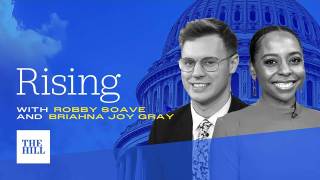The impudent snobbery of Harvard, Penn and MIT

In 1969, Vice President Spiro Agnew famously denounced intellectuals in a Des Moines speech for being “an effete corps of impudent snobs.” His proclamation came home to roost for higher education last week when the presidents of Harvard, Penn and MIT failed in congressional testimony to unequivocally to state that calls on their campuses for genocide against Jewish students would be discriminatory and violate their school’s conduct policies.
This should have been an easy answer. They should have simply said that any calls that threaten the safety of others are not protected speech and would be disciplined. Additionally, such threats are discriminatory. Instead, they equivocated, declaring that it depended on the context. This was the wrong answer, even for First Amendment scholars.
I have taught constitutional law for more than 30 years, and have written many articles and books on free speech and the First Amendment. There is a fundamental difference between the purpose of the First Amendment free speech clause and the Equal Protection clause, which bars discrimination.
The Equal Protection clause bans discrimination based on race, sex, gender, ethnicity and one’s status as a member of the LGBTQ+ community. Some scholars, such as Richard Delgado, argue that the imperative to prevent discrimination means that offensive speech can be limited or suppressed. In effect, free speech gives way to equal protection and prevents discrimination.
Across many campuses, the demand to limit speech in the interest of equal protection or to fight discrimination has been adopted, including at schools like Harvard, Penn and MIT. This is the wrong approach.
The First Amendment protects ideas, even controversial and often offensive ones. It protects the rights to burn flags and crosses as an expression of ideas. It protects the rights of Nazis in Jewish communities such as Skokie, Illinois, to march and express hateful ideas. It protects the rights of communists to advocate revolution.
The First Amendment encourages robust debate of ideas in search of the truth. It protects the right to criticize the government, including public officials. It also protects the right of speech for the purposes of self-expression, something as simple as reading a poem out loud in a public place. The First Amendment has a political purpose as well as perhaps an aesthetic or artistic role.
But what the First Amendment does not protect are true threats to individuals. The Supreme Court long ago said in Brandenburg v. Ohio, the core precedent on what the First Amendment protects, that speech crosses the line to threat when one advocates imminent lawlessness. Advocating violence against others — especially when you call them out by name — crosses the line from speech to threats when action is taken to implement or act on these threats.
The university presidents failed to understand three important points.
First, classroom discussions of controversial topics, including what is genocide or how to respond to the Hamas-Israeli conflict, are protected free speech activities and should be encouraged. There is much to criticize regarding what Hamas, Israel and the U.S. are doing; both in the classroom and in rallies on campus, such debate should be permitted, regardless of how uncomfortable it makes students.
But there is a difference between academic debate and threats. Students should not be protected from offensive or disagreeable ideas in the classroom, but they should be protected from threats in their dorm rooms and elsewhere on campus.
Second, free speech is not a one-way street. For years, university administrators have gone out of their way to create “safe spaces” for students, especially students of color and members of the LGBTQ+ community, so that they will feel safe on campus and to abate discrimination. Those on the political right criticized such efforts as favoring one perspective at the expense of dissent. It’s ironic that the very speech codes put in place to serve this anti-discriminatory purpose are being used to insulate threats. This is the same argument being made by Donald Trump and his supporters when they argue that what he said and did on Jan. 6, 2021, was protected by the First Amendment.
Third, these are private institutions. The First Amendment does not extend to private parties or schools — it only restricts the ability of the government to suppress speech. While private schools should follow the spirit and philosophy of what the First Amendment advocates, they don’t have to do that.
Private schools can deviate and set different standards. The standard is not to regulate the content of speech, but of conduct. This is what the presidents of Harvard, Penn and MIT failed to understand, and what other college administrators fail to grasp.
Universities are not pep rallies. They are not places with homogenized ideologies. The purpose of school is to balance equity with excellence, debate with disagreement, and democracy with difference tempered with toleration.
Where Agnew’s intellectual snobbery comes in is with the mistakes these three presidents made. They are so smart that they failed to understand that the very policies they put in place to protect some vulnerable students are being interpreted to shield threats against others. There is a difference between protecting free speech and promoting equal protection or preventing discrimination.
Free speech means free speech for all, equal protection means equal protection for all, and not just for some. The snobbery is thinking that only some — those whom one favors — get protection for both.
David Schultz is a professor of political science at Hamline University in St. Paul, Minn. Follow him @ProfDSchultz.
regular post copyright









